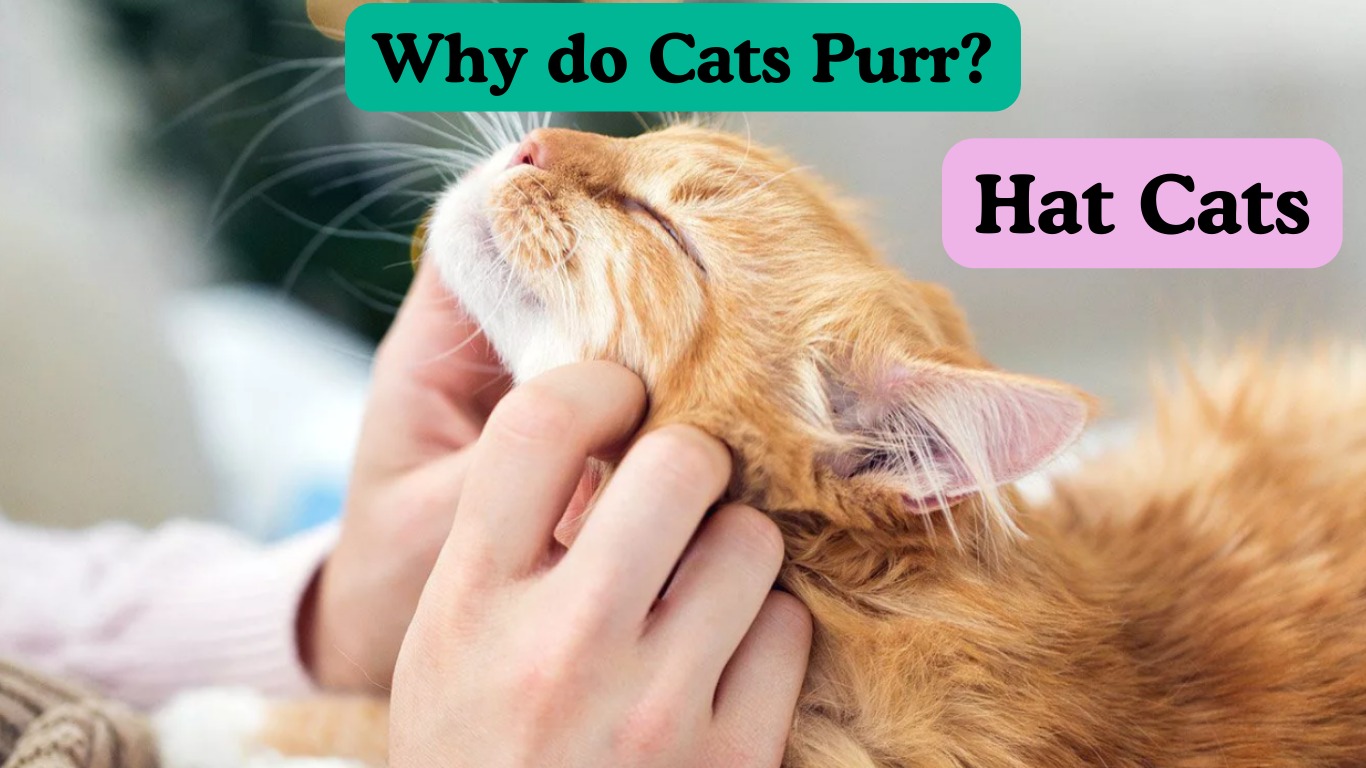Introduction
The Enigmatic Purr of Cats
Cats have been our furry companions for thousands of years, yet their purring remains one of the most fascinating and mysterious behaviors. While many believe cats purr solely out of happiness, the reality is far more complex.
Table of Contents
Why Do Cats Purr?
Basic Understanding
Cats have been our furry companions for thousands of years, yet their purring remains one of the most fascinating and mysterious behaviors. While many believe cats purr solely out of happiness, the reality is far more complex.
Common Misconceptions
One of the most common misconceptions is that a cat’s purr always means they are content. In reality, cats purr for a variety of reasons, not all of which are positive.
Physiological Mechanism of Purring
How Purring Works
Have you ever wondered how cats actually produce that soothing sound? It all starts with the muscles within the cat’s larynx (voice box). These muscles twitch at a rapid rate, causing a sudden separation of the vocal cords during both inhalation and exhalation, resulting in a purr.
Frequency and Vibration
The frequency of a cat’s purr ranges between 25 and 150 Hertz, a range that is known to be medically therapeutic for both cats and humans.
1-Purring as a Communication Tool
Purring to Communicate with Humans
Cats often use purring as a way to communicate with their human companions. It’s their way of saying, “I’m here, I feel safe with you.”
Purring Among Cats
Among themselves, cats purr to show affection, signal submission, and maintain social bonds.
2-The Role of Purring in Kitten Development
Mother-Child Bonding
Kittens start purring when they are just a few days old. This early purring helps establish a bond with their mother and indicates to her that they are content and feeding well.
Kittens’ Health and Development
Purring is crucial for a kitten’s development. It reassures them and promotes a sense of security, which is vital for their growth.
3-Purring for Self-Healing
Healing Properties
Research suggests that the vibrations produced by purring can promote healing in cats. These vibrations can help heal bones and tissues, reduce pain and swelling, and even act as a natural form of physical therapy.
Stress Relief for Cats
Just like how humans may use deep breathing techniques to relax, cats use purring as a way to calm themselves in stressful situations.
4-Emotional Expression through Purring
Happiness and Contentment
Of course, one of the primary reasons cats purr is to express happiness and contentment. When your cat is nestled on your lap, purring away, it’s a sign they are comfortable and happy.
Purring in Stressful Situations
Interestingly, cats also purr when they are stressed or anxious. It’s believed that the act of purring helps them stay calm and composed during such times.
Purring in Wild Cats vs. Domestic Cats
Differences and Similarities
While domestic cats and their wild counterparts both purr, there are some differences in their purring behavior. Domestic cats purr more frequently, especially around humans.
Adaptation to Domestication
Over the years, domestic cats have adapted their purring to better communicate with humans, making it a more prominent part of their behavior.
Unusual Instances of Purring
Purring in Pain or Illness
Sometimes, cats purr when they are in pain or unwell. This might seem counterintuitive, but it’s believed that the act of purring can help them cope with pain and promote healing.
Purring During Pregnancy
Female cats often purr when they are pregnant. This could be a way to self-soothe and manage the discomforts associated with pregnancy.
Misinterpretations of Cat Purring
Purring and Aggression
While rare, some cats may purr when they are agitated or about to become aggressive. It’s crucial to read other body language cues to understand what your cat is trying to communicate.
Purring as a Sole Indicator of Well-being
Purring alone is not a definitive indicator of a cat’s well-being. Always consider other signs of health and behavior to get a complete picture of your cat’s state.
How to Respond to a Purring Cat
Reading the Context
When your cat purrs, pay attention to the context. Are they relaxed and comfortable, or do they seem anxious? This will help you understand why they are purring.
Enhancing Bond with Your Cat
Use purring as an opportunity to strengthen your bond. Pet them gently, talk to them softly, and enjoy the moment of connection.
Conclusion
The purr of a cat is a multifaceted form of communication that conveys a range of emotions and needs. By understanding the different reasons behind your cat’s purring, you can better respond to their needs and enhance your bond with your feline friend.
FAQs
1. Can cats control their purring?
While it seems like cats can control their purring, it’s actually a semi-autonomous response, similar to how humans can sometimes control their breathing.
2. Do all cats purr?
Not all cats purr. For example, large wild cats like lions and tigers do not purr the same way domestic cats do.
3. Why does my cat purr loudly?
Loud purring can indicate various things, from contentment to seeking attention or even discomfort.
4. Can purring heal humans?
The vibrations of a cat’s purr are thought to have therapeutic effects on humans, such as reducing stress and promoting healing.
5. Should I be concerned if my cat is purring constantly?
Constant purring is usually not a cause for concern, but if it’s accompanied by other signs of distress or illness, it’s best to consult a veterinarian.

